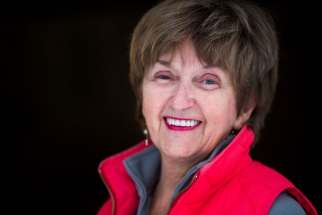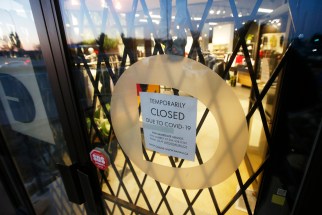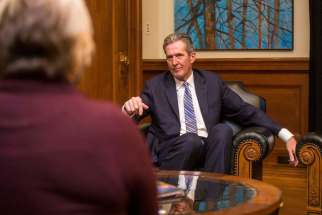‘It’s the beginning of our freedom’ 75-year-old Winnipeg ICU nurse is next in line for vaccine
Read this article for free:
or
Already have an account? Log in here »
To continue reading, please subscribe:
Monthly Digital Subscription
$0 for the first 4 weeks*
- Enjoy unlimited reading on winnipegfreepress.com
- Read the E-Edition, our digital replica newspaper
- Access News Break, our award-winning app
- Play interactive puzzles
*No charge for 4 weeks then price increases to the regular rate of $19.00 plus GST every four weeks. Offer available to new and qualified returning subscribers only. Cancel any time.
Monthly Digital Subscription
$4.75/week*
- Enjoy unlimited reading on winnipegfreepress.com
- Read the E-Edition, our digital replica newspaper
- Access News Break, our award-winning app
- Play interactive puzzles
*Billed as $19 plus GST every four weeks. Cancel any time.
To continue reading, please subscribe:
Add Free Press access to your Brandon Sun subscription for only an additional
$1 for the first 4 weeks*
*Your next subscription payment will increase by $1.00 and you will be charged $16.99 plus GST for four weeks. After four weeks, your payment will increase to $23.99 plus GST every four weeks.
Read unlimited articles for free today:
or
Already have an account? Log in here »
Hey there, time traveller!
This article was published 16/12/2020 (1819 days ago), so information in it may no longer be current.
Once or twice every week, Frances Ferguson heads to Health Sciences Centre and carefully pulls on her personal protective equipment, ready for another shift on the front lines as an intensive care unit nurse. In this, she is united with hundreds of health workers across the province who are holding the front line against COVID-19.
But in one way, Ferguson stands out: at 75, she is in the most at-risk age category, often the same age or older as many of the vulnerable patients who arrive in the ICU, desperately sick with the virus. Now, on Thursday morning, Ferguson will become one of the first Manitobans to receive the COVID-19 vaccine.
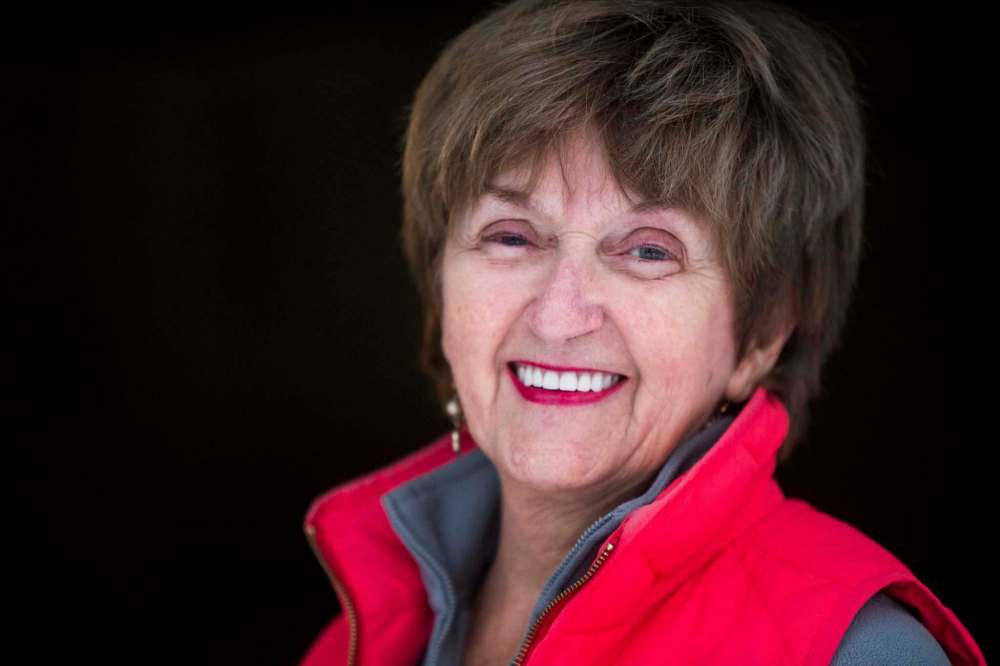
“I’m really thrilled,” Ferguson said Wednesday afternoon. “It’s pretty exciting. There are some very smart people who have worked very hard to get this vaccination mobilized this quickly… It’s the beginning of our freedom. It’s the beginning of our free life again.”
Doctor gets first COVID-19 vaccine in Manitoba

Posted:
WINNIPEG - A doctor who works in internal medicine became the first person in Manitoba to get the COVID-19 vaccine on the same day the province reported 15 more deaths from the novel coronavirus.
The province began the historic immunizations Wednesday morning, rolling out jabs to about 300 Manitoba health-care workers, with a total of 900 to be given the first dose of the vaccine by Friday (a second dose is required three weeks later). With limited doses of the Pfizer-BioNTech vaccine in the initial delivery to the province, the first round is targeted to those who work directly with COVID-19 patients and are in the most at-risk age groups for severe illness.
Ferguson ticks both of those boxes. When the phone line to book vaccination appointments opened Saturday, it was swamped by over 100,000 calls; but she kept trying, dialing the number what she estimates to be hundreds of times before finally getting through to an operator Sunday.
After that, she said, the process was straightforward. They asked when she wanted to come in; she decided that, since she was due to work a shift Tuesday, she’d take a day to relax and get the shot Thursday morning at the province’s first immunization clinic at the University of Manitoba’s Bannatyne campus, next to HSC.
When Ferguson told her family the big news, some of her grandchildren started cheering.
“I think we’re all relieved,” said her daughter, Carrie Ferguson, who lives just north of Toronto.
When Ferguson declared her intention to keep working through the pandemic, her family was “not too thrilled,” said Carrie, herself a former nurse. They were worried about the risk; they also knew Ferguson isn’t one to stop doing what she loves, especially at a time when all hands are needed on deck.
“She stuck to her guns,” Carrie said. “She was not going to miss out on this.”
“It’s pretty exciting. There are some very smart people who have worked very hard to get this vaccination mobilized this quickly… It’s the beginning of our freedom. It’s the beginning of our free life again.” – Frances Ferguson
From the start, working in critical care was Ferguson’s passion. As a trainee nurse in 1973, she was asked to pick a unit she’d like to try first. While some of her peers chose the operating room or labour and delivery, she was already drawn to intensive care; after a three-month trial period, she knew she had found her place.
“It’s the intensity. The pace. The energy that you pour into it,” Ferguson said. “It’s very exciting to recover somebody who is literally dying, and they’re dying when they get to us. We get a lot of them back, and they do well, and it’s just very rewarding.”
For 47 years, she threw herself into the work.
In that time, she earned the respect and affection of her colleagues, some of whom have been there for almost as long as she has. “She’s a great person, and a wonderful nurse,” said Dr. Dan Roberts, who has been at HSC’s ICU since 1981. “She has a great sense of humour and really cares about her patients. She’s an excellent advocate.”
About 10 years ago, Ferguson stepped back from full-time work. But she still kept picking up roughly eight shifts a month, and taking occasional calls to fill in when needed. In recent months, as the second wave has filled regional ICUs with COVID-19 patients, she felt the pressure and need for vigilance ramp up.
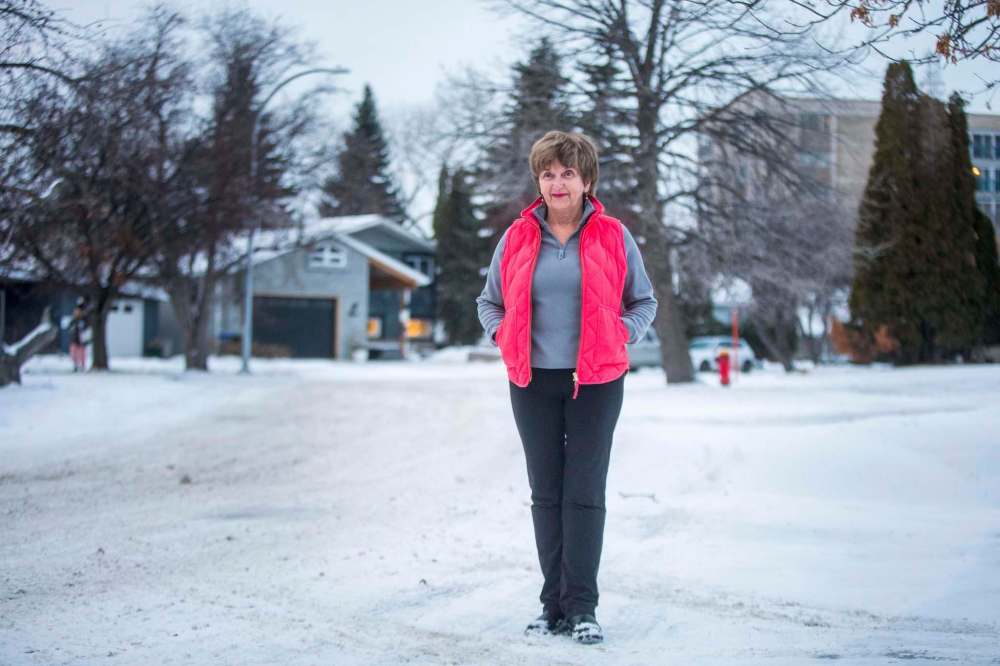
“I probably wash my hands 120 times a day,” she said. “It’s that constant awareness of the environment and being safe in it. It’s been very stressful with so many very ill COVID patients coming in, and we can’t survive them all. And we see the repetition of that. We just have to be there for each other, and we’re doing our best.”
While Ferguson may be one of the oldest ICU nurses still working on the front lines in Canada, she isn’t an anomaly. There are still physicians and nurses who are well into their 60s and 70s, Roberts said, many of whom have kept working on the front lines even as they themselves face the highest risk.
Now, with a light on the horizon in the pandemic, Ferguson is looking forward to what’s ahead.
Last year, she and her 81-year-old partner, Tom Carlyle, got engaged. They were planning a wedding before COVID-19 hit; maybe next year they can finally celebrate it. Her fifth grandchild is due in mid-February, and that was one of the first things she thought about when she booked her vaccine appointment.
“That’s an amazing part of it. I thought, ‘I’m going to be safe for (daughter) Catherine and the baby.’ I haven’t been spending any time with them in the last six weeks.” – Frances Ferguson
“That’s an amazing part of it,” she said. “I thought, ‘I’m going to be safe for Catherine and the baby.’ I haven’t been spending any time with them in the last six weeks. Prior to that we would go for a walk with a mask on. Now we’re really keeping our distance, so this would make it a lot safer for me to see them.”
As for her work life, well, she’s not ready to say. Her partner is considering retiring next year, but she renewed her nursing license for 2021 and leaves her plans at “we’ll see.” Sometimes, doctors and other nurses tease her when she comes into work — “Frances, do you not have enough to do?” they’ll quip — but there’s nowhere she’d rather be.
“It’s like going home,” Ferguson said. “It’s doing something that I love, and it’s doing it with people I know so well. We’re really a team. If you get super busy, you’re not on your own. Someone’s going to see that you’re up to your ears in it, and they’re going to come and help. It doesn’t feel like work.”
melissa.martin@freepress.mb.ca
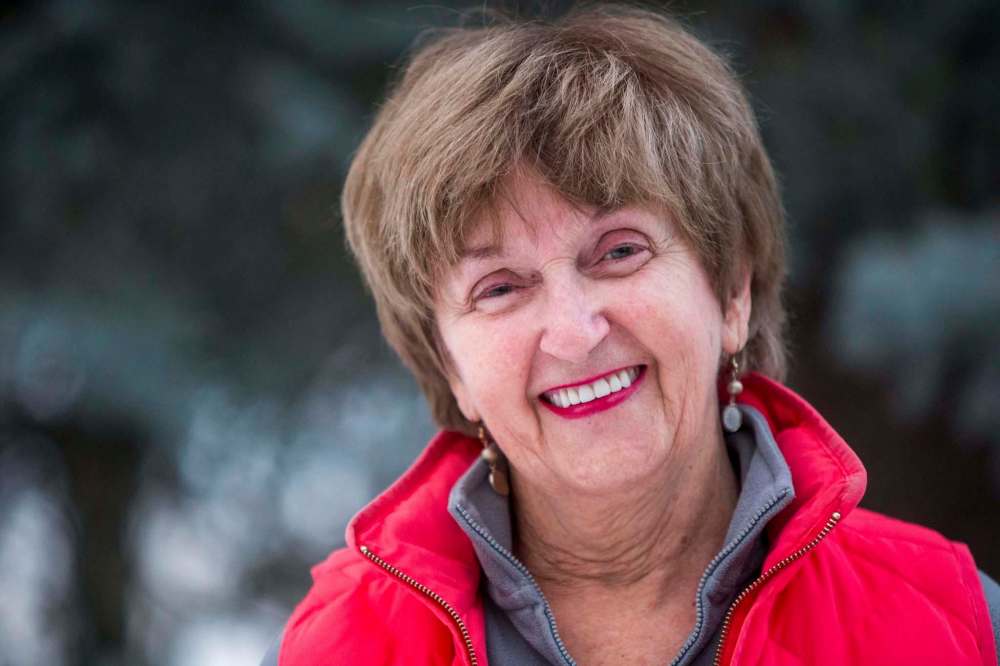
Our newsroom depends on a growing audience of readers to power our journalism. If you are not a paid reader, please consider becoming a subscriber.
Our newsroom depends on its audience of readers to power our journalism. Thank you for your support.


